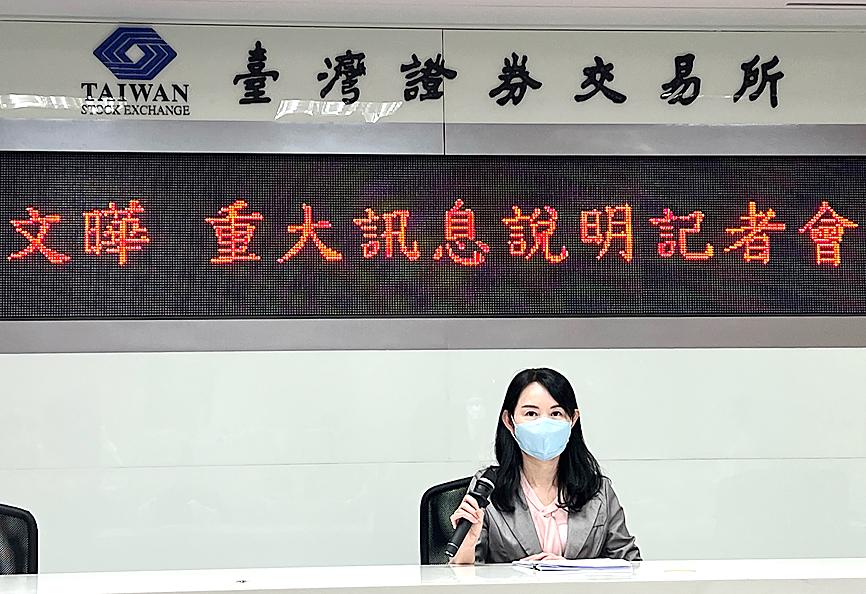Semiconductor components distributor WT Microelectronics Co (文曄科技) yesterday said it would acquire a 100 percent stake in Singapore-based Excelpoint Technology Ltd (世健科技) to expand its business and better serve its customers.
Excelpoint is a regional electronic components distributor providing electronic components, engineering design services and supply chain management, its Web site says.
WT Microelectronics said in a statement that it plans to buy Excelpoint shares at S$1.93 per share through its wholly owned subsidiary WT Semiconductor Pte Ltd.

Photo: CNA
The transaction, which is to cost more than S$232.2 million (US$170.22 million), is expected to occur in the third quarter after gaining approval from Excelpoint shareholders, regulatory authorities and the Singapore High Court, it said.
Excelpoint founder and CEO Albert Phuay would continue to head the firm, while reinvesting part of the cash received in the deal to acquire a 20 percent stake in WT Semiconductor, it added.
“There are strong synergies between the two companies, which believe in adding value to partners. Our complementary and enhanced product line will allow our businesses to expand,” WT Microelectronics said in the statement. “Most importantly, with the experienced teams and footprints of the two companies, customers will benefit from the extensive product solutions and technical support provided by the WT group, helping them to reach the market faster.”
WT Microelectronics reported revenue of NT$447.9 billion (US$15.4 billion) last year, up 26.83 percent from a year earlier.
Net profit was NT$7.92 billion, up from NT$3.79 billion in 2020, with earnings per share of NT$9.96, company data showed.
WT Microelectronics, which was established in 1993, partners with nearly 100 suppliers across major technology segments to serve more than 8,000 customers worldwide, it said.
Excelpoint’s revenue and profit also showed robust growth last year, with revenue increasing 44.2 percent annually to US$1.6 billion and net profit surging 137.2 percent to US$24.5 million, company data showed.
Since it was established in 1987, the Singaporean firm has built long-term relationships with major customers, such as Analog Device Inc, Qorvo Inc, Qualcomm Inc and Samsung Electronics Co, and now works closely with more than 4,000 companies.
“Combining the two companies’ established customer bases will significantly improve WT’s distribution capabilities and customer portfolios in the Asia-Pacific region,” WT Microelectronics said. “The cross-selling of various products to Excelpoint’s and WT’s customers will not only realize potential synergies for the enlarged WT group, but also create further demand opportunities for the suppliers.”

TAKING STOCK: A Taiwanese cookware firm in Vietnam urged customers to assess inventory or place orders early so shipments can reach the US while tariffs are paused Taiwanese businesses in Vietnam are exploring alternatives after the White House imposed a 46 percent import duty on Vietnamese goods, following US President Donald Trump’s announcement of “reciprocal” tariffs on the US’ trading partners. Lo Shih-liang (羅世良), chairman of Brico Industry Co (裕茂工業), a Taiwanese company that manufactures cast iron cookware and stove components in Vietnam, said that more than 40 percent of his business was tied to the US market, describing the constant US policy shifts as an emotional roller coaster. “I work during the day and stay up all night watching the news. I’ve been following US news until 3am

Six years ago, LVMH’s billionaire CEO Bernard Arnault and US President Donald Trump cut the blue ribbon on a factory in rural Texas that would make designer handbags for Louis Vuitton, one of the world’s best-known luxury brands. However, since the high-profile opening, the factory has faced a host of problems limiting production, 11 former Louis Vuitton employees said. The site has consistently ranked among the worst-performing for Louis Vuitton globally, “significantly” underperforming other facilities, said three former Louis Vuitton workers and a senior industry source, who cited internal rankings shared with staff. The plant’s problems — which have not

UNCERTAINTY: Innolux activated a stringent supply chain management mechanism, as it did during the COVID-19 pandemic, to ensure optimal inventory levels for customers Flat-panel display makers AUO Corp (友達) and Innolux Corp (群創) yesterday said that about 12 to 20 percent of their display business is at risk of potential US tariffs and that they would relocate production or shipment destinations to mitigate the levies’ effects. US tariffs would have a direct impact of US$200 million on AUO’s revenue, company chairman Paul Peng (彭雙浪) told reporters on the sidelines of the Touch Taiwan trade show in Taipei yesterday. That would make up about 12 percent of the company’s overall revenue. To cope with the tariff uncertainty, AUO plans to allocate its production to manufacturing facilities in

TARIFF CONCERNS: The chipmaker cited global uncertainty from US tariffs and a weakening economic outlook, but said its Singapore expansion remains on track Vanguard International Semiconductor Corp (世界先進), a foundry service provider specializing in producing power management and display driver chips, yesterday withdrew its full-year revenue projection of moderate growth for this year, as escalating US tariff tensions raised uncertainty and concern about a potential economic recession. The Hsinchu-based chipmaker in February said revenues this year would grow mildly from last year based on improving supply chain inventory levels and market demand. At the time, it also anticipated gradual quarter revenue growth. However, the US’ sweeping tariff policy has upended the industry’s supply chains and weakened economic prospects for the world economy, it said. “Now